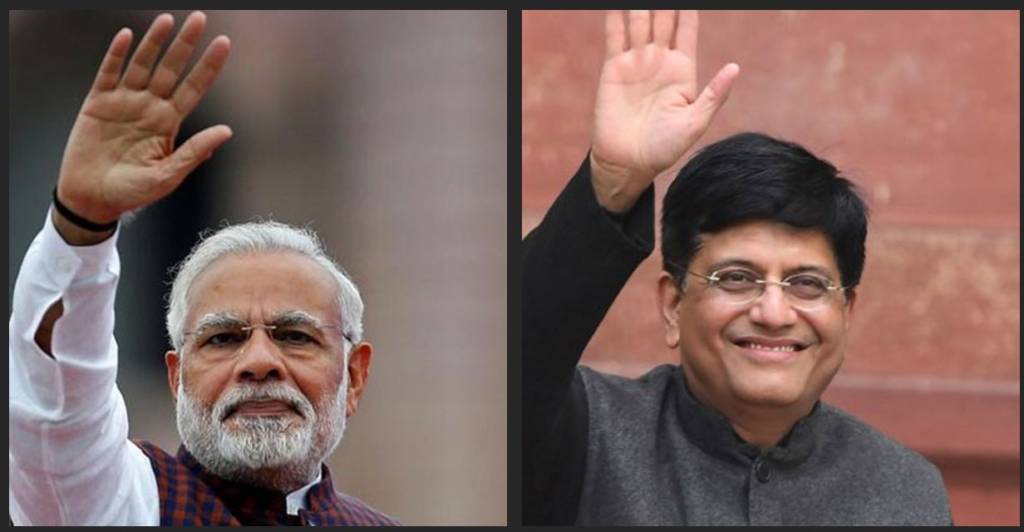The farmers and industry leaders have applauded the decision made by the Modi government to ditch RCEP deal. Previously, the dairy farmers have strongly resisted the deal as it would have opened Indian markets to Australian and Kiwi (New Zealand) farmers. The farmers from these countries produce cheaper and better quality dairy products given the availability of land and subsidies from the government. The Indian dairy farmers are not yet ready to compete with farmers from these countries.
“On behalf of 36 lac co-op milk producers of Gujarat, we wish to thank Hon PM @narendramodifor his exemplary leadership and support to 10 crore milk producer families of India. Your vision of supporting their livelihood will help doubling their incomes and make India stronger,” tweeted Amul, applauding the government’s decision to pull out of RCEP and protect the dairy sector.
On behalf of 36 lac co-op milk producers of Gujarat, we wish to thank Hon PM @narendramodi for his exemplary leadership and support to 10 crore milk producer families of India. Your vision of supporting their livelihood will help doubling their incomes and make India stronger
— Amul.coop (@Amul_Coop) November 4, 2019
#Amul Topical: Interest of farmers, small firms and dairy sector
safe-guarded in India’s non-signing of RCEP… pic.twitter.com/SfyRFgDV4E— Amul.coop (@Amul_Coop) November 5, 2019
The industry leaders and retailers who feared that China will flood the Indian markets with cheap goods if India joins the free trading block also applauded the government’s decision.
According to Praveen Khandelwal, Secretary-General of the leading lobby group, Confederation of All India Traders (CAIT),” the Indian market with Made In China products at very low prices… thereby creating a disequilibrium” and therefore the government’s decision to ditch the multilateral trade deal must be applauded.
The Indian steel industry was most worried about the trade deal. A few weeks before India took final decision of the deal, Seshagiri Rao, joint MD at JSW Steel, said, “Our plea is that even if RCEP negotiations are finalised, Indian steel industry which has suffered in the past even under the current FTA arrangements with 13 countries, should be excluded from its purview.” The steel industry has also applauded the Modi government’s decision to ditch RCEP.
India has very solid reasons to back off from China-led RCEP. The member countries of RCEP include ten member states of the Association of Southeast Asian Nations (ASEAN)- Brunei, Cambodia, Indonesia, Laos, Malaysia, Myanmar, the Philippines, Singapore, Thailand and Vietnam and 6 Asia-Pacific countries- Australia, China, India, Japan, South Korea and New Zealand. Out of the 15 member countries, India already has trade deals with ASEAN (10 countries), Japan and South Korea.
The only countries whose market access India would get are Australia, New Zealand and China. The government is already working on bilateral trade deals with New Zealand and Australia. India is not interested in signing a free trade deal with China as China already has $53 billion trade deficit.
Indian businesses worry that they will lose due to the new trade deal because companies from RCEP member countries could offer cheaper products which will ultimately hurt their sales and profits. A $53 billion trade deficit with China is a major concern for the policymakers in the country, businessmen and policymakers also worry that India could be a dumping ground for Chinese exports as the United States shuts the door for them.
Therefore, India wanted Import cap for China which means India would have been free to raise tariffs on Chinese products but the member countries did not agree to the Indian demand.
One argument in favour of the trade deal was that India will gain at services front due to the robust presence of Indian companies in the services sector. The policymakers were very much sure that India is going to lose on the goods front in the short term but the services front, there will be an opportunity to capture a large market. In the long run, the service sector will constitute a larger part of the Indian economy, therefore, the trade-off of goods for services seems a good idea.
India wanted more trade in services and preferential treatment to the Indian services sector. This would have meant that Indian workers in the IT sector, medical professionals and teachers could easily migrate to member nations and work there, but China did not agree to these demands.
A multilateral deal like RCEP, with India’s concerns unaddressed, would have further widened trade deficit with member nations. India would prefer a bilateral deal with member countries of RCEP instead of a multilateral deal. Out of the 15 member countries, India already has trade deals with ASEAN (10 countries), Japan, and South Korea.
The wave of multilateral free trade deal is over since the rise of protectionism. The economic superpowers like the United States, United Kingdom are going for bilateral trade deal rather than multilateral ones. India might just take a leaf out of their book and sign a bilateral trade deal with the United States instead of going for RCEP.
